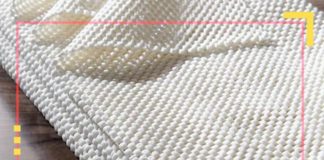
If you’re planning to buy new sunglasses, consider reusing your old ones and getting new lenses for them. This will save you a lot of money, as a new pair of sunglasses cost more than an old pair. Many opticians are happy to accommodate changes in prescriptions, and you can trade-in your old frames for cash. Sunglasses are not only fashion statements but also necessary for protecting your eyes.
UV protection
While buying sunglasses for the summer, you should find out if there’s macys promo code or not. You should make sure to choose the right ones that offer UV protection. You should look for those that have 99% or 100% protection. Those with UV400 labeling will block all light with wavelengths of 400 nanometers or less. If you’re not sure, take the time to have the glasses tested before you buy them. The cost should be negligible, so it’s well worth the effort.
Make sure that the sunglasses you buy block 100 percent of UVA and UVB rays. Look for labels that say 100% protection against both UVA and UVB. Don’t be fooled by features such as polarization. Although these feature doesn’t directly affect UV protection, they do increase the vibrancy of colors, enhance dramatic contrast, and improve your visual clarity. Make sure to read the labels carefully to ensure you’re getting a pair that will provide the protection you need.
Frame size
When buying sunglasses, choose the correct frame size for your face. Small faces look better with smaller frames, while large faces look better with larger frames. Often referred to as the ‘frame size’, frame size is the actual fit of the sunglasses, not the coverage. Unless you are wearing contact lenses, avoid buying oversized stunner shades, as these are likely to cause your face to look smaller than desired.
The length of the arms is another factor to consider. Measurement is usually printed on the inside of the left temple, which is the piece behind the ear. A pair’s frame size is usually a series of three numbers. The third number represents the length of the frame’s arms, and it will be printed on the inside of the left temple. Make sure to measure this measurement.
Lens tints
If you’re looking for the best pair of sunglasses that will protect your eyes from the sun’s harmful rays, you can upgrade the lenses to get better protection from UV rays. Polycarbonate lenses and other high-index materials are a good choice for 100-percent UV protection. Look for a label that says UV400+. Another option is to purchase sunglasses with dyes instead of natural UV blocks. These dyes reduce visible light. These dyes can be light pastel colors or deeper shades for sunglasses.
Mirrored lenses are more for looks than functional value. Purple or blue chrome lenses can reduce glare but do not offer any functional benefit. Mirrored lenses are good for people with high light sensitivity because they make objects appear darker. These lenses are more expensive than normal lenses, but they have their uses. If you have high light sensitivity, you can choose a pair of sunglasses with mirror lenses.
Lens density
There are many factors to consider when buying driving sunglasses, including lens density. Some lenses are not clear enough to allow enough light to enter the eye while others have particular lens colors that can make it harder for the driver to see in certain conditions. This guide will help you make the best decision for your needs, from tint densities to safety markings. You’ll also learn about the different types of lenses, such as mirrored and polarized.
The British Standard Mark is an industry-standard that ensures that sunglasses meet a specific level of protection. These standard sets standards for sunglasses, such as UV protection and overall performance. While some sunglasses feature high-quality polarized lenses, others don’t.
Reusable frames
Another great way to save money on new eyeglasses is to reuse the frames from your old pair. While some retailers allow you to reuse frames, many don’t. Using a reusable frame is a better option because you can save money on new eyeglasses while extending the life of your frames. When considering whether to reuse your sunglasses, make sure to check the manufacturer’s warranty for the frames.
You can also recycle your used frames if they are made of plastic. Many sunglasses have a recycling sign on them, but some don’t. If you find a pair of sunglasses that you don’t wear, you can simply give it to someone else. Don’t forget to remove the lenses first!







































